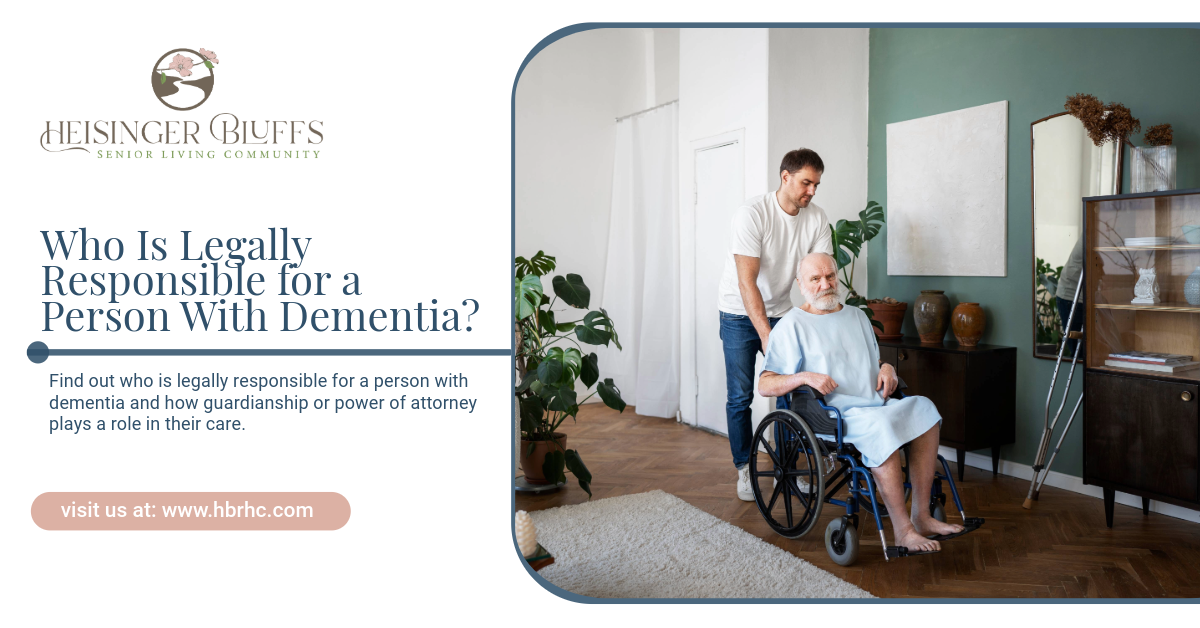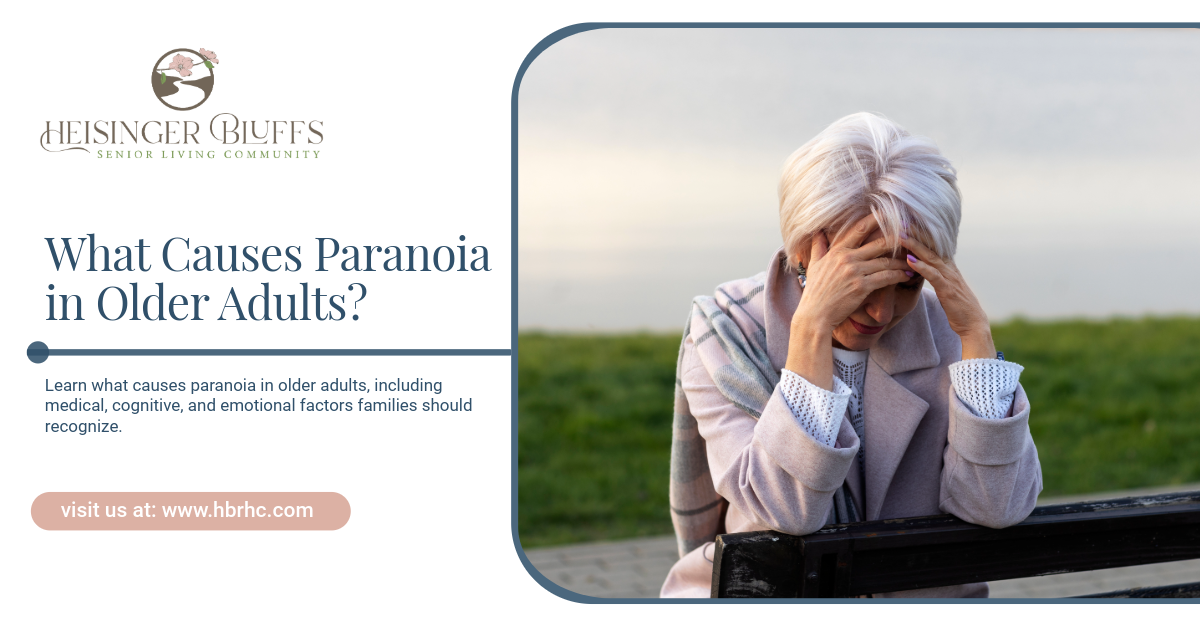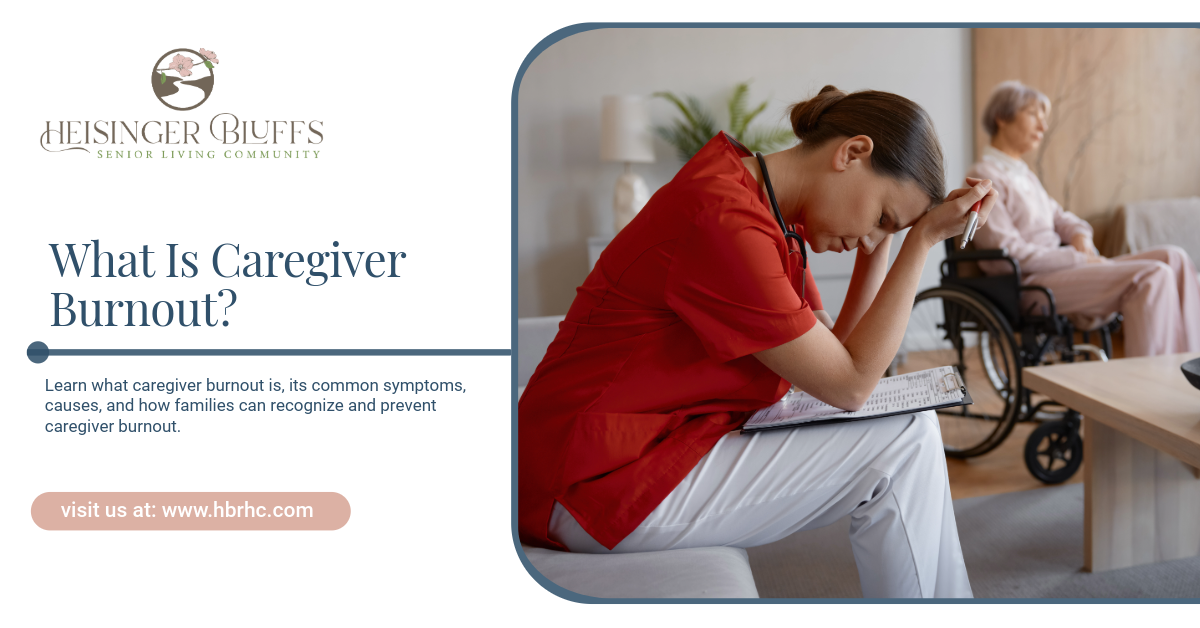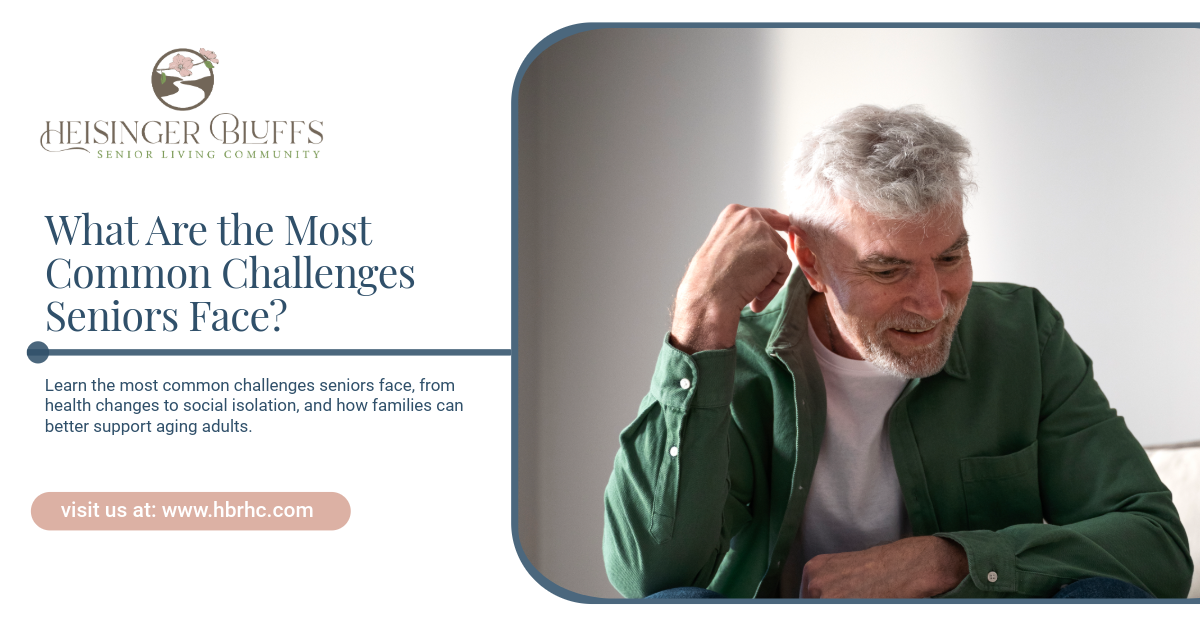Who Is Legally Responsible for a Person With Dementia?

When a person with dementia can no longer make safe or informed decisions, legal responsibility often shifts to someone else. This is typically established through power of attorney (POA) or legal guardianship.
If the person signed a POA before losing mental capacity, the designated agent becomes responsible for making financial and/or medical decisions. Without a POA, a family member or other party must petition the court to become the legal guardian. This process grants them the authority to make decisions about care, finances, and living arrangements.
Responsibility can also vary depending on the state and the individual's circumstances. Without proper legal documentation, no one can legally make decisions, even a spouse or adult child. That’s why it’s important to plan early.
At Heisinger Bluffs, we support families navigating these legal and care decisions, offering guidance and resources along the way.
Frequently Asked Questions
What’s the difference between POA and guardianship?
POA is assigned voluntarily; guardianship is court-appointed.
Can multiple people be legally responsible?
Yes, if legally named as co-agents or co-guardians.
When should legal steps be taken?
As early as possible—before full cognitive decline.
Sources:
- https://www.alz.org/help-support/caregiving/financial-legal-planning/legal-documents
- https://alzfdn.org/guardianship-conservatorships/











